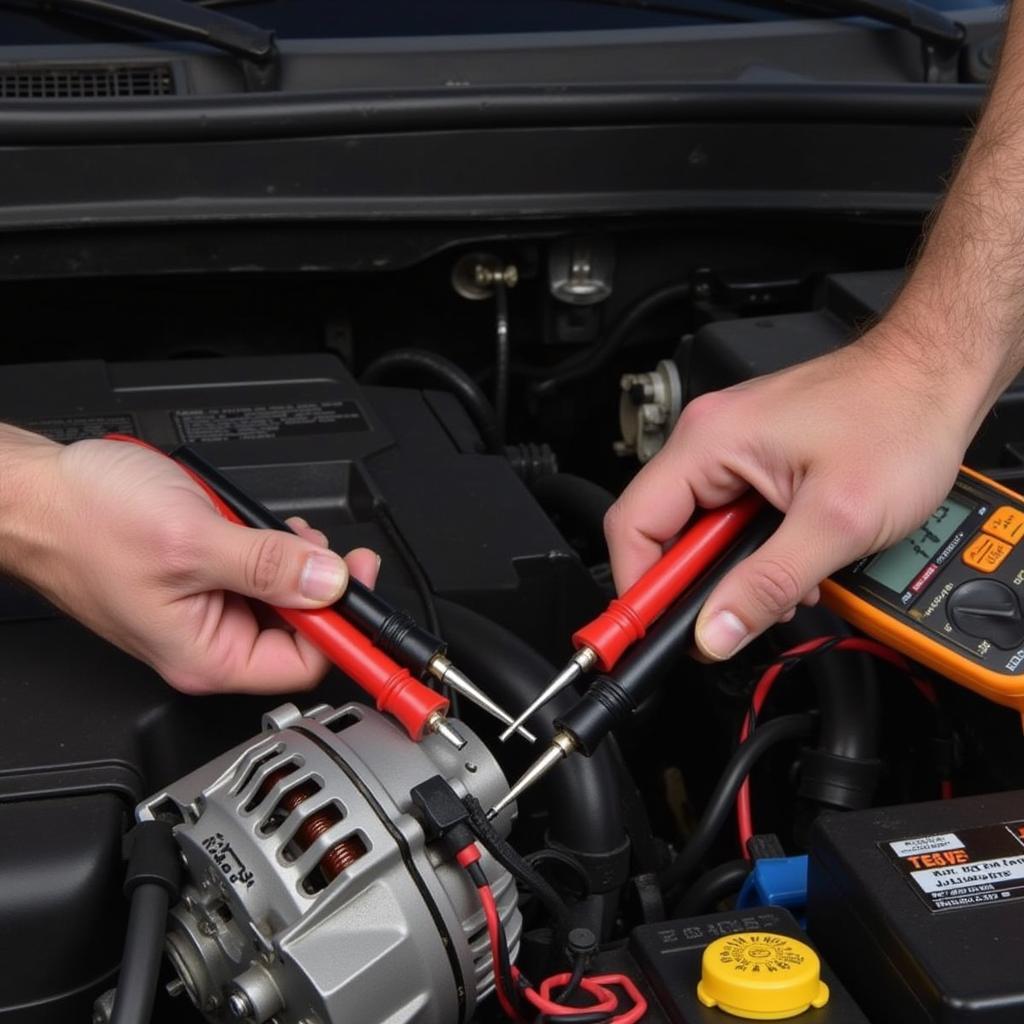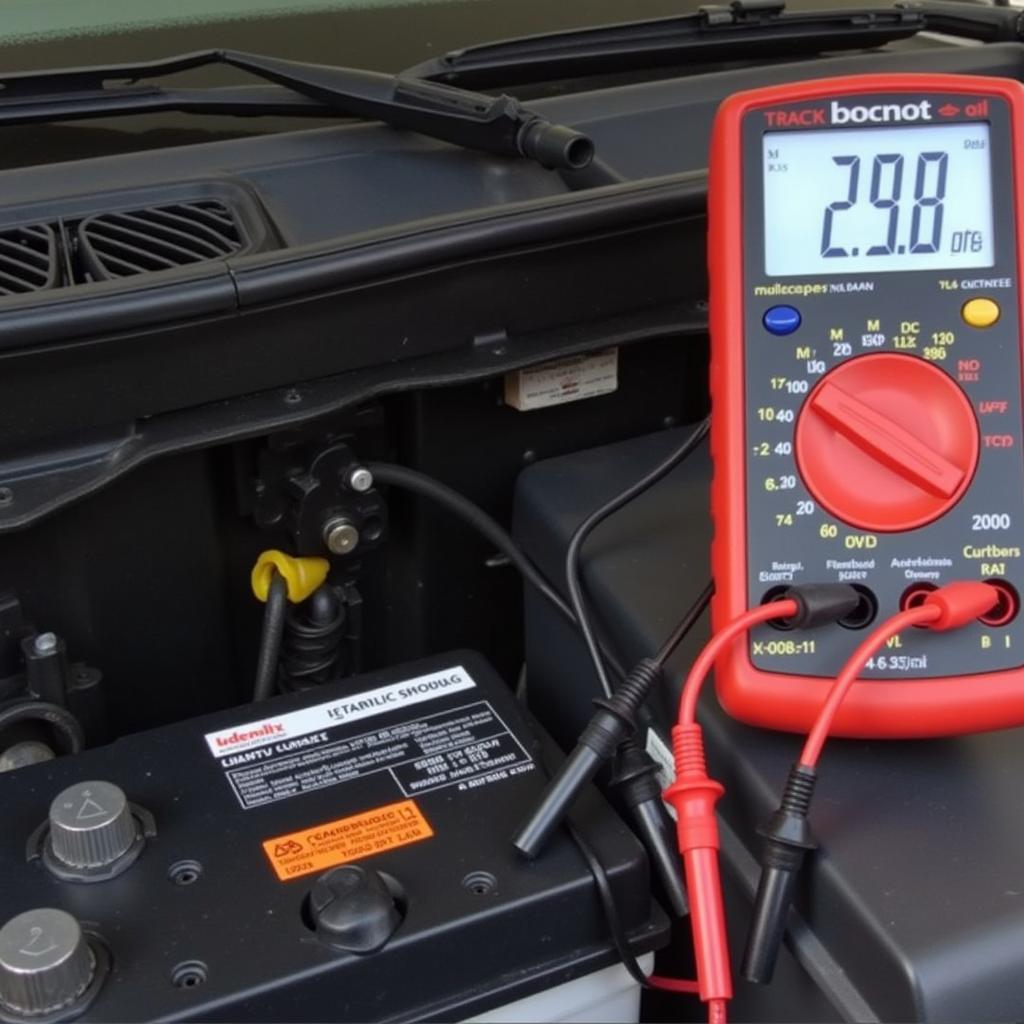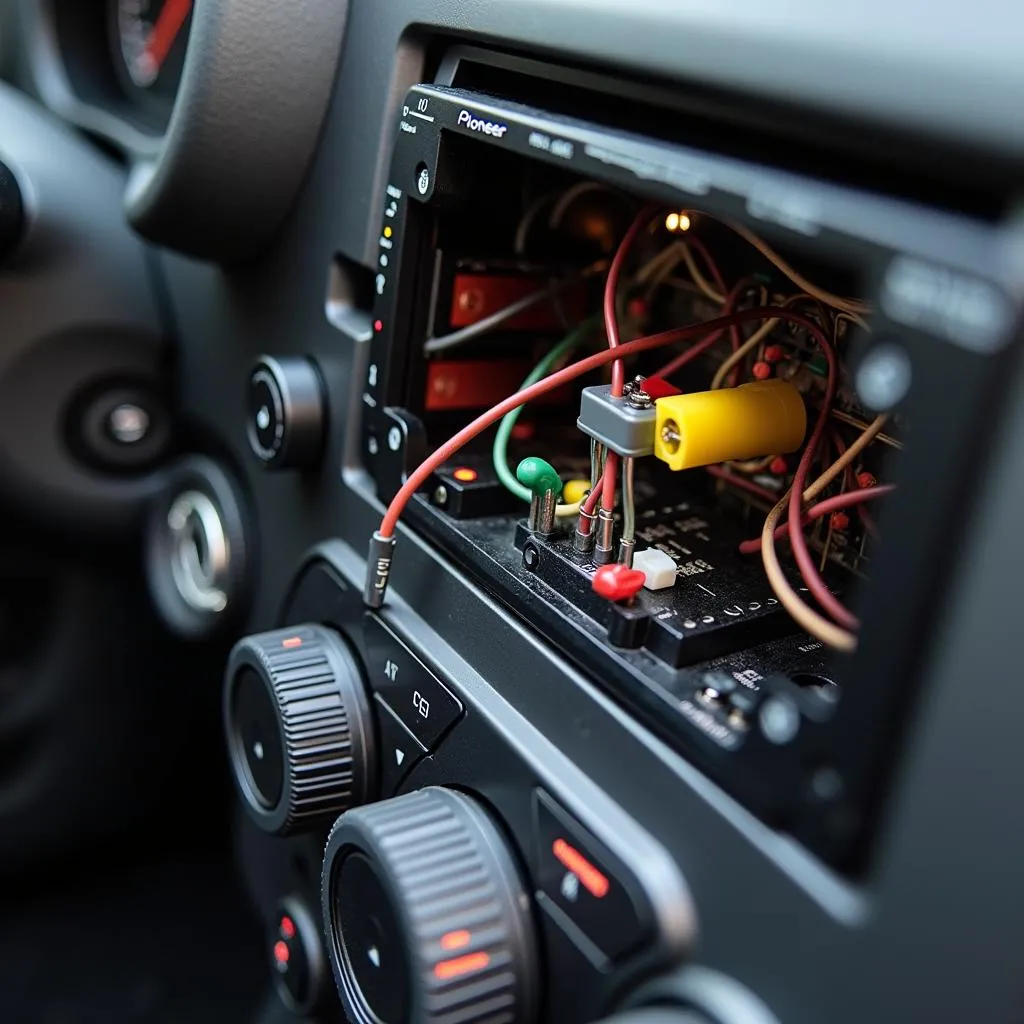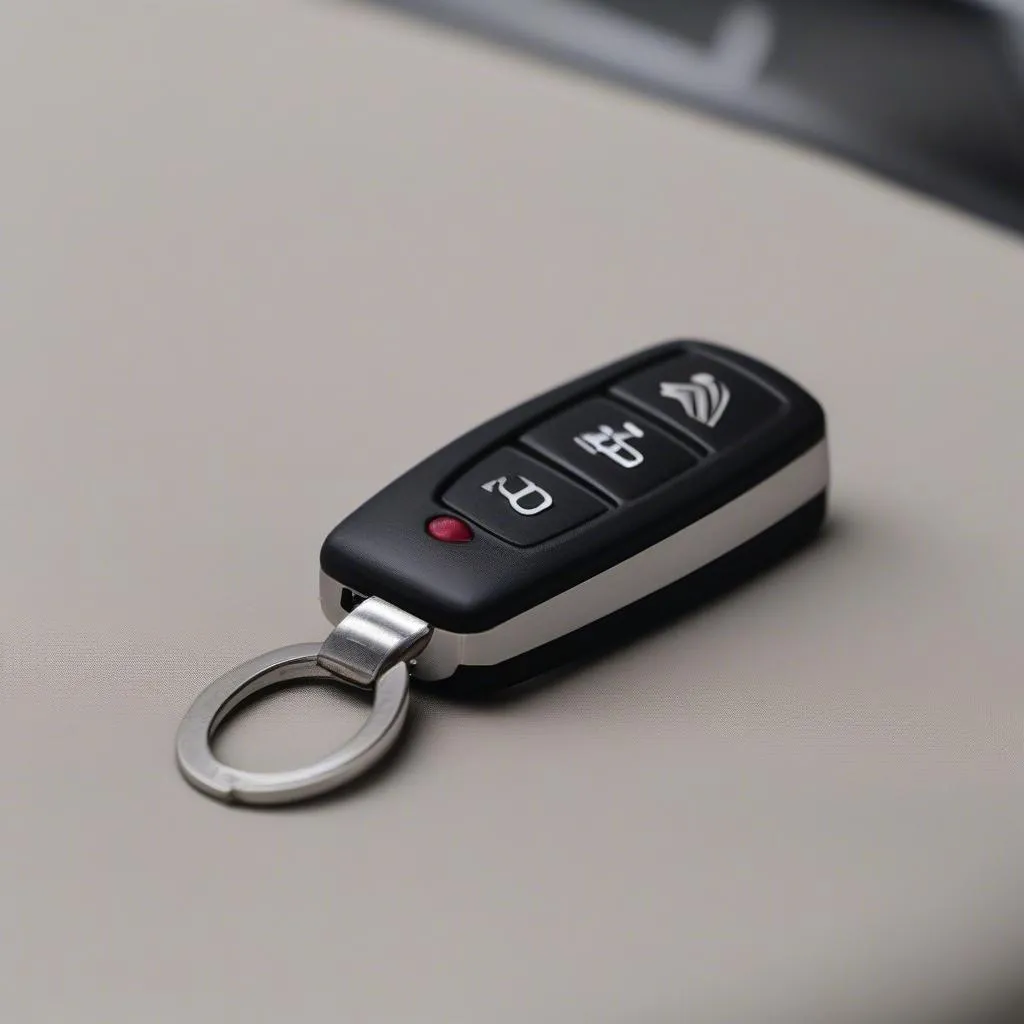A dead battery in your 2003 Jeep Grand Cherokee is frustrating, especially if it happens repeatedly. This guide dives deep into the common causes of a 2003 Jeep Grand Cherokee battery drain, offering practical solutions and diagnostic steps to get you back on the road. We’ll cover everything from simple checks to more advanced troubleshooting techniques.
Identifying the Culprit Behind Your 2003 Jeep Grand Cherokee Battery Drain
Several factors can contribute to a battery drain in your 2003 Jeep Grand Cherokee. Pinpointing the exact cause is crucial for an effective fix. Is it a faulty component, a parasitic draw, or simply an aging battery? Let’s explore the possibilities.
Common Causes of a 2003 Jeep Grand Cherokee Battery Drain
- Faulty Alternator: The alternator recharges the battery while the engine is running. A failing alternator won’t charge properly, leading to a drained battery.
- Parasitic Draw: Even when the car is off, certain components draw a small amount of power. A faulty component can draw excessive power, draining the battery overnight. Common culprits include interior lights, door switches, and the radio.
- Bad Battery: An old or damaged battery may not hold a charge effectively, resulting in frequent draining.
- Corroded Terminals: Corrosion on the battery terminals can impede the flow of electricity, leading to charging issues and a drained battery.
 Checking the alternator in a 2003 Jeep Grand Cherokee
Checking the alternator in a 2003 Jeep Grand Cherokee
How to Diagnose a 2003 Jeep Grand Cherokee Battery Drain
- Check the Battery: The first step is to test the battery’s health. Use a multimeter to measure the voltage. A fully charged battery should read around 12.6 volts.
- Inspect the Terminals: Look for corrosion on the battery terminals. Clean them with a wire brush and baking soda solution if necessary.
- Test the Alternator: With the engine running, the voltage should be around 14 volts. If it’s significantly lower, the alternator might be faulty.
- Perform a Parasitic Draw Test: With the engine off and all accessories turned off, disconnect the negative battery cable and connect a multimeter in series between the cable and the battery terminal. A reading above 50 milliamps indicates a parasitic draw.
 Performing a parasitic draw test on a 2003 Jeep Grand Cherokee
Performing a parasitic draw test on a 2003 Jeep Grand Cherokee
Solutions for 2003 Jeep Grand Cherokee Battery Drain Issues
Once you’ve identified the cause of the battery drain, you can take the appropriate action. This might involve replacing the battery, repairing or replacing the alternator, or tracking down and fixing the source of a parasitic draw.
Addressing Specific Battery Drain Problems
- Alternator Replacement: Replacing a faulty alternator is often a straightforward process.
- Battery Replacement: Choose a battery with the correct specifications for your 2003 Jeep Grand Cherokee.
- Finding a Parasitic Draw: This can be more challenging. You’ll need to systematically check fuses and circuits to isolate the culprit. A wiring diagram can be helpful.
“Regular maintenance, including checking your battery and alternator, can prevent many battery drain issues,” advises John Miller, a seasoned automotive electrical engineer with over 20 years of experience.
Conclusion
Dealing with a 2003 Jeep Grand Cherokee battery drain can be a hassle. However, by following the diagnostic steps outlined in this guide, you can identify the cause and implement the necessary fix. Regular maintenance and proactive checks can help you avoid this problem in the future. Don’t let a dead battery strand you—take control and keep your Jeep running smoothly.
“Investing in a good quality battery and ensuring your charging system is functioning correctly is essential for long-term vehicle reliability,” adds Miller. “It’s a small price to pay for peace of mind.”
FAQ
-
How long should a 2003 Jeep Grand Cherokee battery last?
Typically, a car battery lasts 3-5 years. -
Can a bad alternator drain a new battery?
Yes, a faulty alternator won’t charge the battery, leading to a drain even if the battery is new. -
What are the signs of a bad alternator?
Dim headlights, flickering dashboard lights, and a whining sound from the engine bay can indicate a bad alternator. -
How can I prevent my 2003 Jeep Grand Cherokee battery from draining?
Regularly check your battery terminals for corrosion and ensure your alternator is functioning properly.
- What tools do I need to diagnose a battery drain?
A multimeter and a basic set of hand tools are typically sufficient.
- Can leaving the lights on drain the battery?
Yes, leaving interior or exterior lights on can drain the battery, especially older batteries.
- Should I disconnect the battery if my car is going to sit unused for a long time?
Disconnecting the negative battery terminal can prevent drain while the car is not in use.


